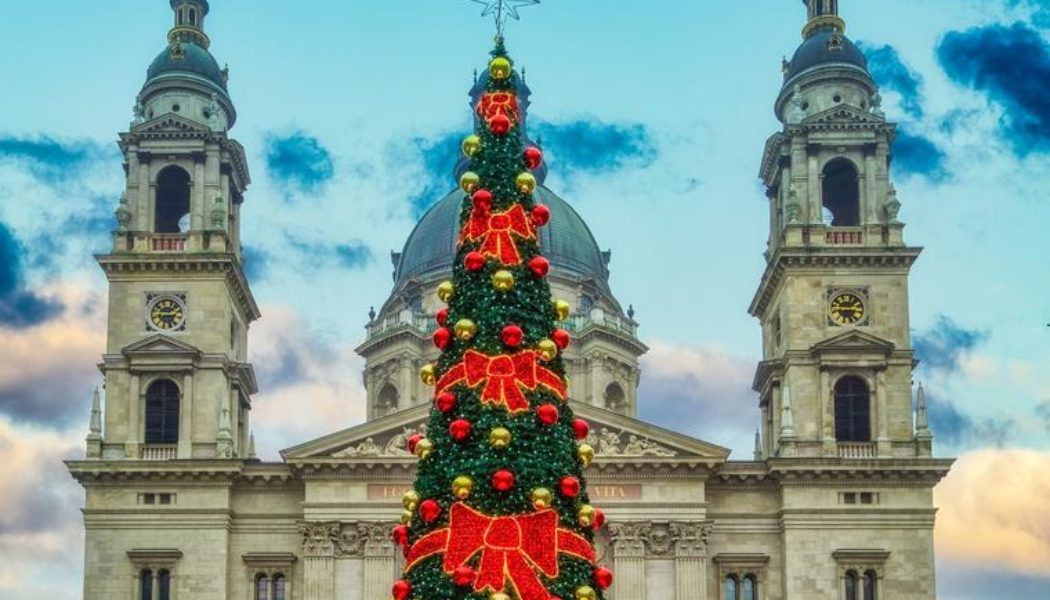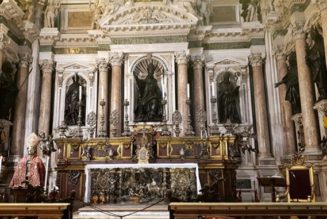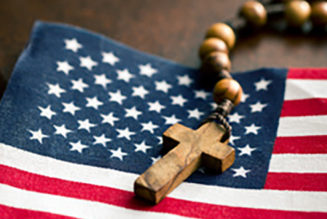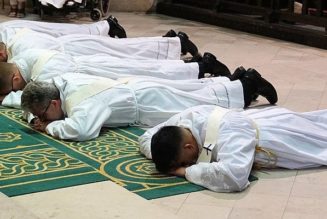
When, through our words and actions, we show that there’s more to Christmas than a single day, we make a statement about the Catholic faith.
We are a novelty in our neighborhood and perhaps among our friends and acquaintances as well. Long after Christmas, New Year’s Day and Epiphany, our Christmas decorations — both inside and outside — remain up and lighted. We leave them up until the Presentation of the Lord, celebrated Feb. 2 each year. What’s more, we continue to celebrate Christmas and all its related feasts until then.
When we look back on Church history, celebrating Christmas this way isn’t novel at all. Before the Second Vatican Council, the Christmas season lasted for 40 days, echoing the 40 days of Lent. It was customary at the time to extend Christmas until Feb. 2, carefully observing the feasts in between: St. Stephan (Dec. 26), Holy Innocents (Dec. 28), the Holy Family (the Sunday after Christmas), the Solemnity of Mary, Mother of God (Jan. 1), the Epiphany of the Lord (Jan. 6 or the nearest Sunday), the Baptism of the Lord (Sunday after Epiphany), and, finally, the Presentation of the Lord or Candlemas (Feb. 2). That is seven feast days to celebrate over the course of six weeks!
I wonder why people would want to cut out those beautiful feasts and cut short their Christmas celebration. The weeks leading up to Christmas tend to be so chaotic, with shopping, wrapping, decorating, cooking, baking, running errands, and goodness knows what else. Then, suddenly, it’s all gone, and life goes back to usual. I would like to suggest that you take the time after Christmas to slow down, relax, and relish all the historical happenings and holy days associated with the birth of Christ.
And what about the Christmas tree? What if you have a real tree that won’t last until Feb. 2? I have a funny family anecdote about real Christmas trees and prolonged celebrations. One year, our real tree died just a few days after Christmas. It had stopped drinking water and had started to turn brown. For safety’s sake, we took it down. Our resourceful children — then between the ages of 5 and 10, took a hike around the neighborhood, rounded up a perfectly good Christmas tree that had been set out on the curb, and brought it home. Imagine my surprise and embarrassment when I opened the front door to see my children proudly standing with a scavenged Christmas tree! Nevertheless, we brought it in, set it up, and decorated it. That one got us close to Feb. 2.
I’m not advocating pillaging Christmas trees, of course, and you might have an artificial tree. In that case, you need not worry about it dying and drying out. But either way I am advocating carrying on with your Christmas celebrations until all the associated feast days have passed. Keep the Christmas carols playing. Plan something for each of those days like a special meal, visits with family and friends, watching a Christmas movie, reading Scripture, or doing whatever makes the day stand out for you. Doing this — especially when you have young children — helps to instill a sense of the history of our Lord’s life and the legacy he has passed on to us. When, through our words and actions, we show that there’s more to Christmas than a single day, we make a statement about our faith. When we become a novelty, we become witnesses to Christ.









